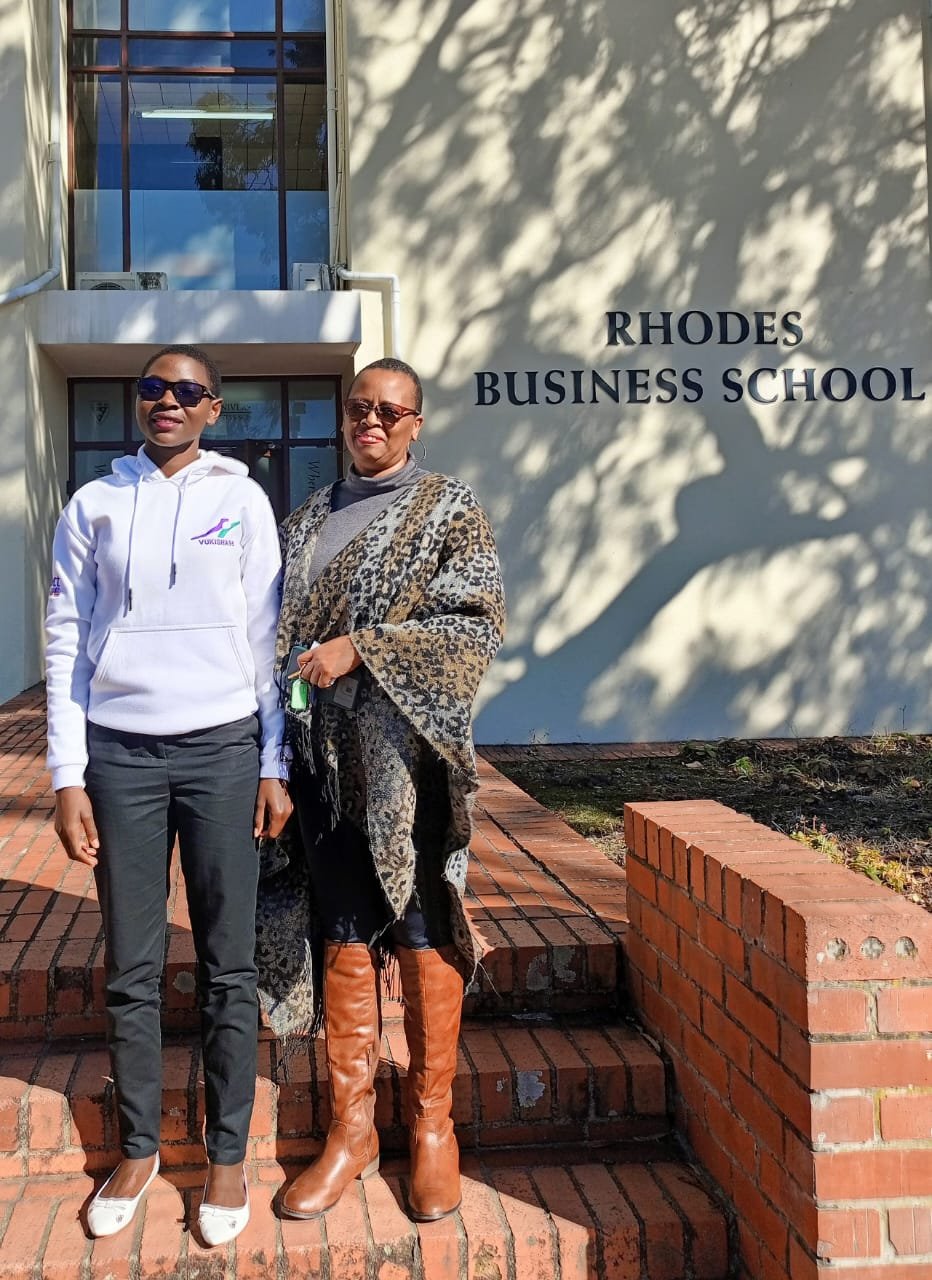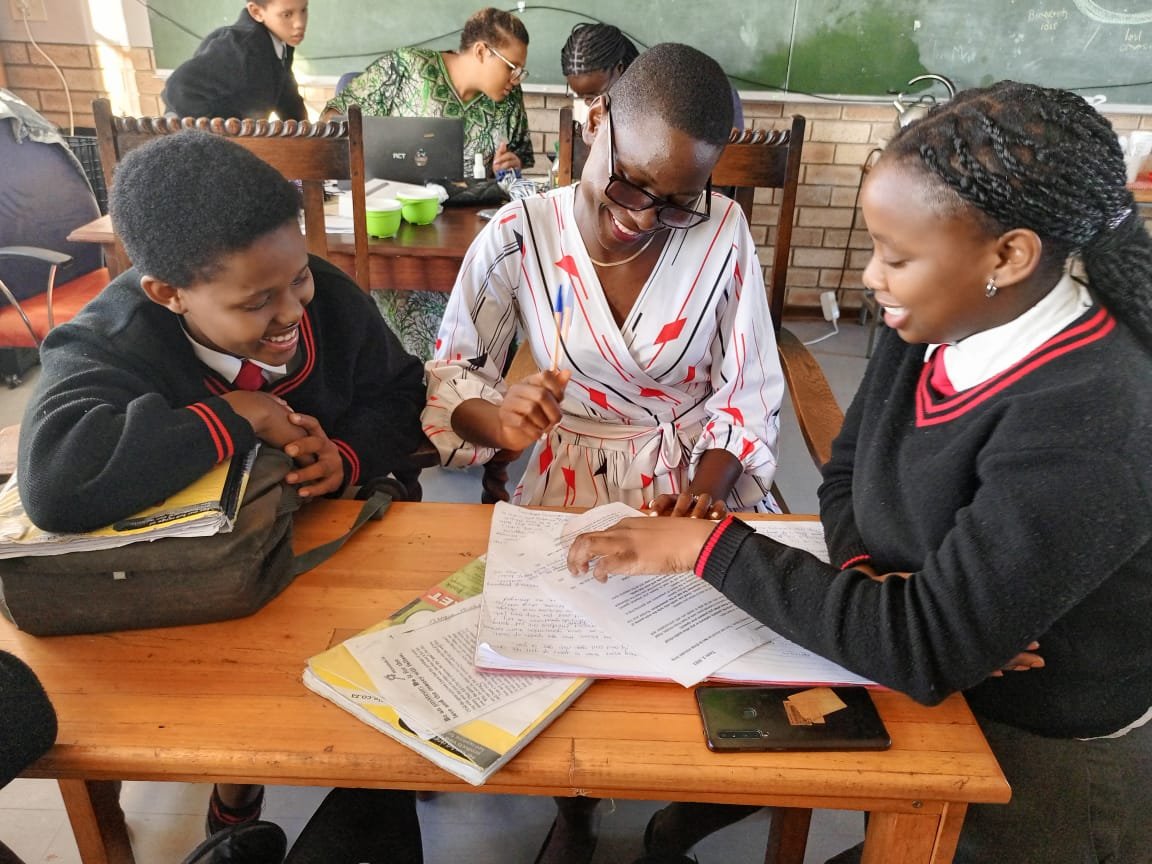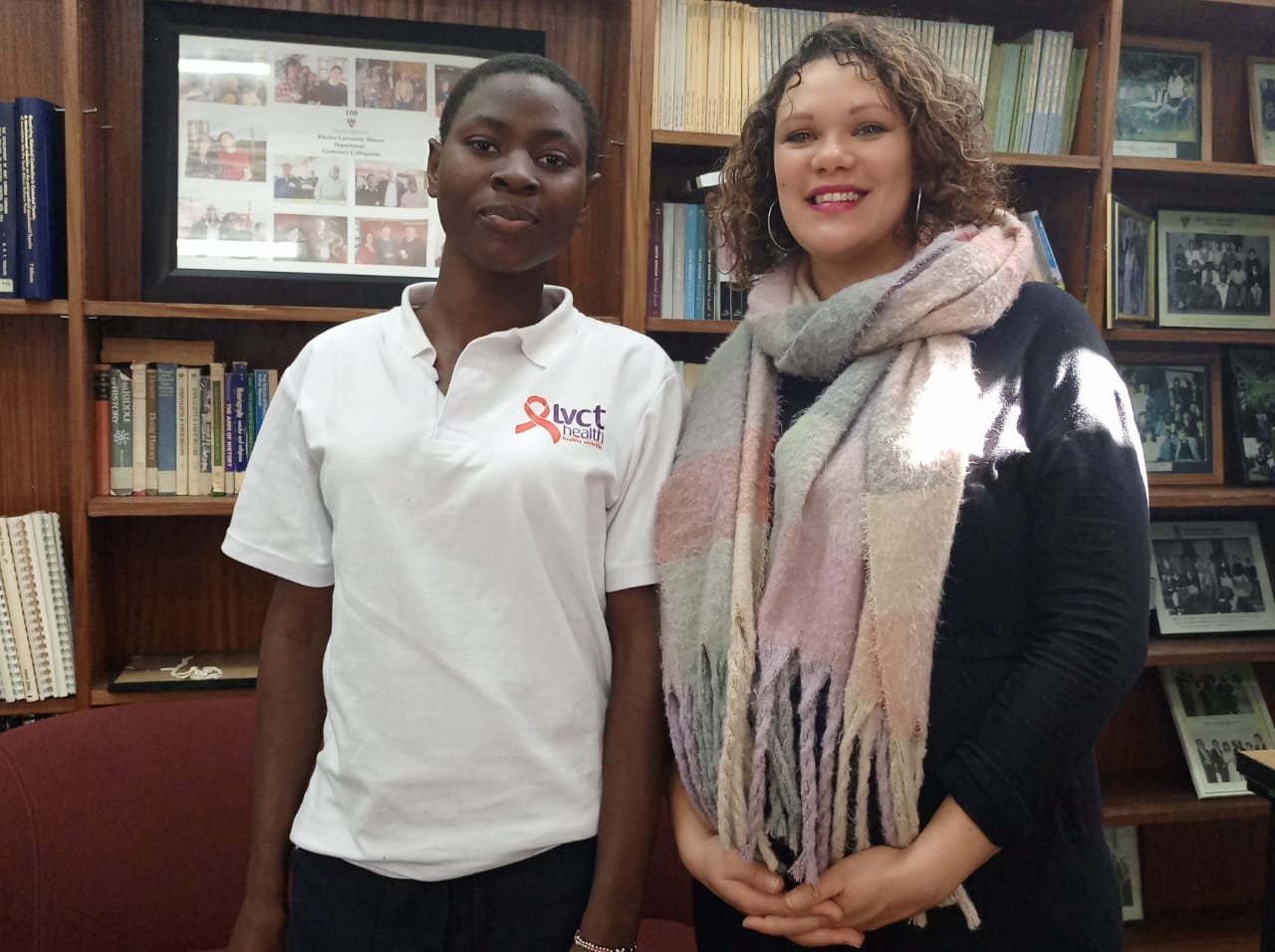Intercultural Exchange Visits and Community Engagement Experience in South Africa
By: Emily Odhiambo
Youth and Community empowerment has been my all time passion. Being one of the NOREC Program Exchange participants is a dream come true. Getting an opportunity to interact directly with my peers in South Africa and learning more about their culture tradition and languages is so exciting.
My first experience in South Africa was beyond my expectations and being that I was a foreigner here, I expected a kinda hostile environment but this was not the case. The warm reception and smile on everyone’s face was so exciting. The support system that I got from my willing and supportive Inkululeko colleagues made me feel at home.
Last week has been the most enjoyable part of my Exchange in South Africa. Together with the University of Michigan, students (A team that joined us from the US) we’ve been having intercultural exchange visits and Community Engagement activities with stakeholders that include lawyers, Professors and Established Business People in Makhanda. Engaging them in various conversations on the Education system, Business Structures and the History of the country left me wondering how I can rally my peers to bring Change for a sustainable future.
1. Business in Makhanda
Earlier in the week, I was hosted by Prof. Tshidi Mohapeloa (An acting Director of the newly formed Rhodes University Centre for Entrepreneurship Rapid Incubator (RU-CFERI)) and PGDip in Enterprise Management at Rhodes Business School and Mr. Eugene who is the owner of Grahams Hotel and a Businessman in Grahamstown. We had an interesting chat on Entrepreneurship and Youth Empowerment in South Africa and the Business Structures in the Country respectively.
a. Entrepreneurship and Youth Empowerment
Just like Kenya, youths hold a bigger percentage of the population in South Africa and sadly a better percentage of them are unemployed. In our conversation with the professor I realized that youths have a lot of untapped innovations in Grahamstown. Despite the town being rich in local resources that are not technically advanced, tourist attraction center that holds annual festival arts and even an educative Center with several primary and secondary schools and an international University (Rhodes University) youth unemployment still remains a major in Makhanda.The South African government rolled out an initiative under National Youth Development Agency that provides Scholarships and Business Support to the youths but this still does not seem sustainable due to uncoordinated ecosystems in the country. This still calls for the local governments to come up with integrative solutions to activate the creativity industry for the youths.
b. Business Structures in Makhanda
Unlike Nairobi, a day begins past 8 am in Makhanda. When you go to town at 6 am in the morning, the streets are very clear showing how reluctant people are to get into their businesses. For a very long time I wondered why these people were never bothered to start up their businesses along the streets. In our discussion with Mr. Eugene, it was clear that the town was dominated by survivalists who could come to the streets, get something for the family then handles the day as it comes. This was clear from his explanation on the government requirements to start up a business especially in the hospitality department that he was trading in. My attention was however glued on Mr. Eugene’s business structure and how he brings in the aspect of community engagement. He classified them as follows;
Social Investment (Value addition to the Community)
Supplier Investment (prioritization of the communities for tenders).
Work base skills plan (Capacity building sessions and counselling sessions for the Employees to ensure that they remain productive at all times).
Coming up with a team committee that handles various disciplines like Finance and Health. This ensures quality output.
Enterprise Development.
Economic Empowerment.
He also stressed that young people should pick up spaces and seek Mentorship from the established people in the business so that when they’re venturing into the business, they’re already informed on the right paths to take.
2. Education in South Africa.
We were hosted by Tr. Carmen Brandt who is a Senior teacher at Ntsika Senior Secondary School. She started us off with a brief history of her teaching journey and how landed in the teaching field. She mentions that choosing to be a teacher is one of the best decisions she ever made in her life. Seeing her smiling around and showing love to the students made me understand this statement deeper.
The unfortunate thing that appeared in our discussion was the high teenage pregnancies and high suicide cases in most junior and senior secondary schools in town. Sadly, there are no professional counselors attached to these schools to provide psychological support to the students due to very little funds that they get from the government. Much appreciation goes to these individuals who have volunteered to be the Social Behavior Change Agents in various schools.
Due to a very long history of racial segregation in South Africa that brought economic disparities, there is a very wide gap between the poor and the rich. This affects the education system in the country since the disadvantaged students are not able to afford expensive School fees for the private schools around.
3. The History of South Africa
Having a session with Prof. Thumbran a Snr. Lecturer at Rhodes University left me wondering my role as an African youth. To date, South Africa is one of the African countries that are still fighting gender equality with under representation of women in the government. Just like Kenya, South Africa still faces the rampant government crisis like;
Corruption
Unstable power supply
Collapsing infrastructure i.e Roads
Youth unemployment
Disease outbreak
High cost of living
The political unrest in the country is caused by some political parties i.e Economic Freedom Fighters that holds demonstrations against the high cost of living and unstable power supply. This affects business, security and the growth of the country making it unfavorable for investors.
In conclusion, my stay in South Africa has been full of new experiences and apart from the unpredictable weather changes in Makhanda, I still look forward to meeting new people besides building memories that will enable me expand my knowledge, skills as well as growing as a young person.



